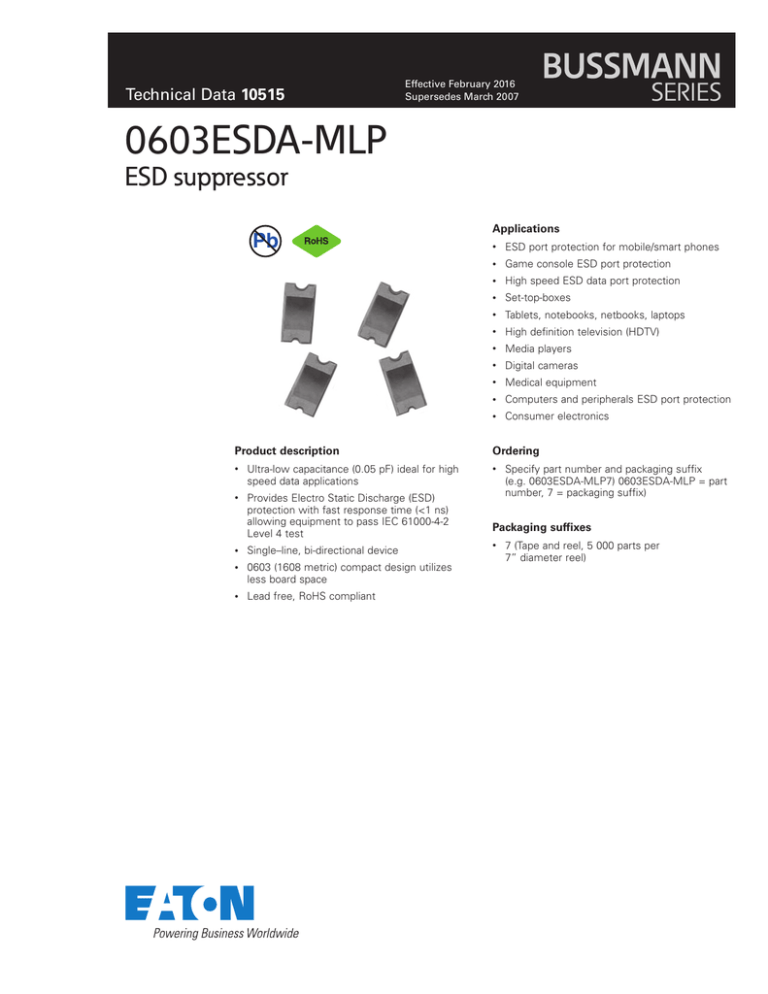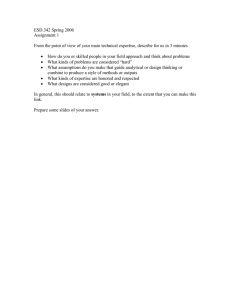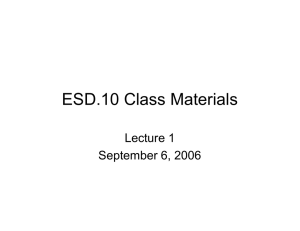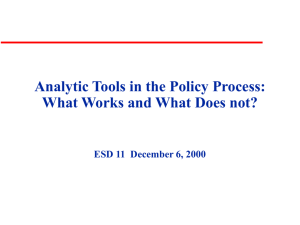
Technical Data 10515
Effective February 2016
Supersedes March 2007
0603ESDA-MLP
ESD suppressor
Pb
Product description
•
Ultra-low capacitance (0.05 pF) ideal for high
speed data applications
•
Provides Electro Static Discharge (ESD)
protection with fast response time (<1 ns)
allowing equipment to pass IEC 61000-4-2
Level 4 test
•
Single–line, bi-directional device
•
0603 (1608 metric) compact design utilizes
less board space
•
Lead free, RoHS compliant
Applications
•
ESD port protection for mobile/smart phones
•
Game console ESD port protection
•
High speed ESD data port protection
•
Set-top-boxes
•
Tablets, notebooks, netbooks, laptops
•
High definition television (HDTV)
•
Media players
•
Digital cameras
•
Medical equipment
•
Computers and peripherals ESD port protection
•
Consumer electronics
Ordering
•
Specify part number and packaging suffix
(e.g. 0603ESDA-MLP7) 0603ESDA-MLP = part
number, 7 = packaging suffix)
Packaging suffixes
•
7 (Tape and reel, 5 000 parts per
7” diameter reel)
0603ESDA-MLP
ESD suppressor
Technical Data 10515
Effective February 2016
Product specifications
Part number4
Rated
voltage
(VDC)
maximum
Clamping
voltage1
(V) typical
Trigger
voltage2
(V) typical
Capacitance
@ 1 MHz (pF)
typical
Capacitance
@ 1 MHz (pF)
maximum
Attenuation
change (0–6
GHz) (dB)
typical
Leakage
current @
12 VDC (nA)
typical
ESD
capability
IEC61000-42 Direct
discharge
(kV) typical
0603ESDA-MLP
30
35
300
0.05
0.15
-0.2
<0.1
8
1. Clamping voltage: Per IEC61000-4-2, Level 4 waveform (8 kV direct 30 A) measured 30 ns after initial
pulse.
2. Trigger voltage: Trigger measurement made using Transmission Line Pulse (TLP) method.
ESD
capability
IEC61000-42 Air
discharge
(kV) typical
ESD pulse
withstand3
typical
15
>1000
3. Minor shifting in characteristics may be observed over multiple ESD pulses at very rapid rate.
4. Part Number Definition: 0603ESDA-MLP
0603ESDA= Product code and size
-MLP= Form designation
Dimensions—mm [in]
Design considerations
The location in the circuit for the 0603ESDA-MLP has to be carefully determined. For better performance, the device should be placed
as close to the signal input as possible and ahead of any other component. Due to the high current associated with an ESD event, it is
recommended to use a “0-stub” pad design (pad directly on the signal/data line and second pad directly on common ground).
Environmental data
Operating temperature: - 55 °C to +125 °C
Storage temperature (component): - 55 °C to +125 °C
Load humidity: 12 VDC per EIA/IS- 722 +85 °C, 85% relative humidity for 1 000 hours
Thermal shock: 10 cycles, - 55 °C to +125 °C, 30 minute dwell time
Moisture resistance: MIL-STD-202G, method 106G, 10 cycles
Mechanical shock: EIA/IS- 722 paragraph 4.9
Mechanical vibration: EIA/IS- 722 paragraph 4.10
Resistance to solvent: EIA/IS- 722 paragraph 4.11
2
www.eaton.com/elx
0603ESDA-MLP
ESD suppressor
Technical Data 10515
Effective February 2016
Wave solder profile
Reflow soldering not recommended
tp
Temperature
Tp
First Wave
Second Wave
Tsmax
Tstyp
Tsmin
Preheat area
Cool down area
Time
Reference EN 61760-1:2006
Profile Feature
Standard SnPb Solder
Lead (Pb) Free Solder
• Temperature min. (Tsmin)
100°C
100°C
• Temperature typ. (Tstyp)
120°C
120°C
• Temperature max. (Tsmax)
130°C
130°C
• Time (Tsmin to Tsmax) (ts)
70 seconds
70 seconds
D preheat to max Temperature
150°C max.
150°C max.
Peak temperature (TP)*
235°C – 260°C
250°C – 260°C
Time at peak temperature (tp)
10 seconds max
5 seconds max each wave
10 seconds max
5 seconds max each wave
Ramp-down rate
~ 2 K/s min
~3.5 K/s typ
~5 K/s max
~ 2 K/s min
~3.5 K/s typ
~5 K/s max
Time 25°C to 25°C
4 minutes
4 minutes
Preheat
Manual solder
350°C, 4-5 seconds (by soldering iron), generally manual hand soldering is not recommended.
www.eaton.com/elx
3
0603ESDA-MLP
ESD suppressor
Technical Data 10515
Effective February 2016
Solder reflow profile
TP
TC -5°C
tP
Max. Ramp Up Rate = 3°C/s
Max. Ramp Down Rate = 6°C/s
Temperature
TL
Preheat
A
T smax
t
Table 1 - Standard SnPb Solder (Tc)
Package
Thickness
Volume
mm3
<350
Volume
mm3
≥350
<2.5mm)
235°C
220°C
≥2.5mm
220°C
220°C
Table 2 - Lead (Pb) Free Solder (Tc)
Tsmin
25°C
ts
Time 25°C to Peak
Package
Thickness
Volume
mm3
<350
Volume
mm3
350 - 2000
Volume
mm3
>2000
<1.6mm
260°C
260°C
260°C
1.6 – 2.5mm
260°C
250°C
245°C
>2.5mm
250°C
245°C
245°C
Time
Reference JDEC J-STD-020D
Profile Feature
Standard SnPb Solder
Lead (Pb) Free Solder
• Temperature min. (Tsmin)
100°C
150°C
• Temperature max. (Tsmax)
150°C
200°C
• Time (Tsmin to Tsmax) (ts)
60-120 Seconds
60-120 Seconds
Average ramp up rate Tsmax to Tp
3°C/ Second Max.
3°C/ Second Max.
Liquidous temperature (Tl)
Time at liquidous (tL)
183°C
60-150 Seconds
217°C
60-150 Seconds
Peak package body temperature (TP)*
Table 1
Table 2
Time (tp)** within 5 °C of the specified classification temperature (Tc)
20 Seconds**
30 Seconds**
Average ramp-down rate (Tp to Tsmax)
6°C/ Second Max.
6°C/ Second Max.
Time 25°C to Peak Temperature
6 Minutes Max.
8 Minutes Max.
Preheat and Soak
* Tolerance for peak profile temperature (Tp) is defined as a supplier minimum and a user maximum.
** Tolerance for time at peak profile temperature (tp) is defined as a supplier minimum and a user maximum.
Life Support Policy: Eaton does not authorize the use of any of its products for use in life support devices or systems without the express written
approval of an officer of the Company. Life support systems are devices which support or sustain life, and whose failure to perform, when properly
used in accordance with instructions for use provided in the labeling, can be reasonably expected to result in significant injury to the user.
Eaton reserves the right, without notice, to change design or construction of any products and to discontinue or limit distribution of any products. Eaton also
reserves the right to change or update, without notice, any technical information contained in this bulletin.
Eaton
Electronics Division
1000 Eaton Boulevard
Cleveland, OH 44122
United States
www.eaton.com/elx
© 2016 Eaton
All Rights Reserved
Printed in USA
Publication No. 10515
February 2016
Eaton is a registered trademark.
All other trademarks are property
of their respective owners.






